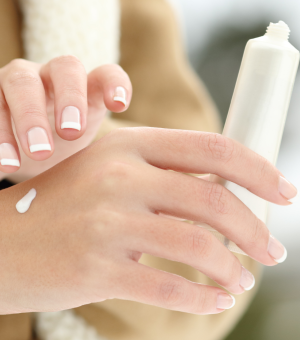Wednesday, February 7, 2024
Class 101 : Botox (TM) and Dysport (TM)
Dre Emilie Bourgeault

Dr Marc-André Doré

Wednesday, May 1, 2024
Skin cancer is the most common type of cancer globally, with millions of cases diagnosed each year. As the body's largest organ, the skin is vulnerable to various factors that can lead to cancerous growths. Understanding the different types of skin cancer, their symptoms, and prevention methods is crucial for early detection and effective treatment. In this blog post, we'll delve into the various forms of skin cancer, shedding light on their characteristics and providing insights into prevention strategies.
Basal cell carcinoma is the most prevalent form of skin cancer, typically appearing on areas exposed to the sun, such as the face, neck, and hands. Symptoms include a pearly or waxy bump, a flat, flesh-colored or brown scar-like lesion, or a bleeding or scabbing sore that heals and returns. Although rarely fatal, BCC can cause significant damage if left untreated, including disfigurement and destruction of surrounding tissues.
Squamous cell carcinoma often develops on areas exposed to the sun, such as the face, ears, lips, and back of the hands. Symptoms may include a firm, red nodule, a flat lesion with a scaly crust, or a sore that doesn't heal. While SCC is usually curable when detected early, it can metastasize to other parts of the body if left untreated, posing a greater risk of complications.
Melanoma originates in the pigment-producing cells (melanocytes) of the skin and is the most aggressive form of skin cancer. It can develop anywhere on the body, including areas not exposed to the sun, and often presents as an unusual mole or pigmented spot. Early detection is crucial, as melanoma can spread rapidly to other organs, leading to life-threatening complications if left untreated.
Recognizing the symptoms of skin cancer and performing regular self-examinations can significantly aid in early detection. Look for any changes in the size, shape, color, or texture of moles, freckles, or other skin lesions. Additionally, pay attention to new growths or spots that exhibit irregular borders, asymmetry, or uneven coloring. If you notice any suspicious changes, promptly consult a dermatologist for further evaluation and diagnosis.
Prevention plays a pivotal role in reducing the risk of skin cancer. Here are some effective strategies to protect your skin:
Sun Protection: Limit exposure to ultraviolet (UV) radiation by seeking shade, wearing protective clothing, and applying broad-spectrum sunscreen with a minimum SPF of 30.
Avoid Tanning Beds: Refrain from using tanning beds, as they emit harmful UV radiation that can increase the risk of skin cancer.
Regular Skin Checks: Perform monthly self-examinations to monitor changes in your skin, and schedule annual skin cancer screenings with a dermatologist, especially if you have a family history of skin cancer or other risk factors.
Stay Hydrated: Proper hydration promotes skin health and helps maintain its protective barrier against environmental damage.
Healthy Lifestyle: Adopt a balanced diet rich in fruits, vegetables, and antioxidants, and avoid smoking and excessive alcohol consumption to support overall skin health.
Skin cancer is a prevalent and potentially life-threatening condition, but early detection and proactive prevention measures can significantly reduce its impact. By familiarizing yourself with the different types of skin cancer, staying vigilant for symptoms, and prioritizing sun safety practices, you can safeguard your skin and minimize the risk of developing this disease. Remember, your dermatologist is your ally in skin health, so don't hesitate to seek professional guidance for any concerns or questions regarding your skin. Together, we can work towards a future where skin cancer is less prevalent and more effectively managed. Stay sun-safe and skin-conscious!
Looking to learn more?
Wednesday, February 7, 2024
Dre Emilie Bourgeault

Wednesday, January 17, 2024
Dre Emilie Bourgeault
Winter is a magical time of the year, but unfortunately, it also brings its share of challenges for our skin. The dry cold and climate changes can leave our skin prone to dryness, causing an uncomfortable tight sensation and sometimes unpleasant chapping. However, with a few simple adjustments to your...

Sunday, December 17, 2023
Dre Emilie Bourgeault
